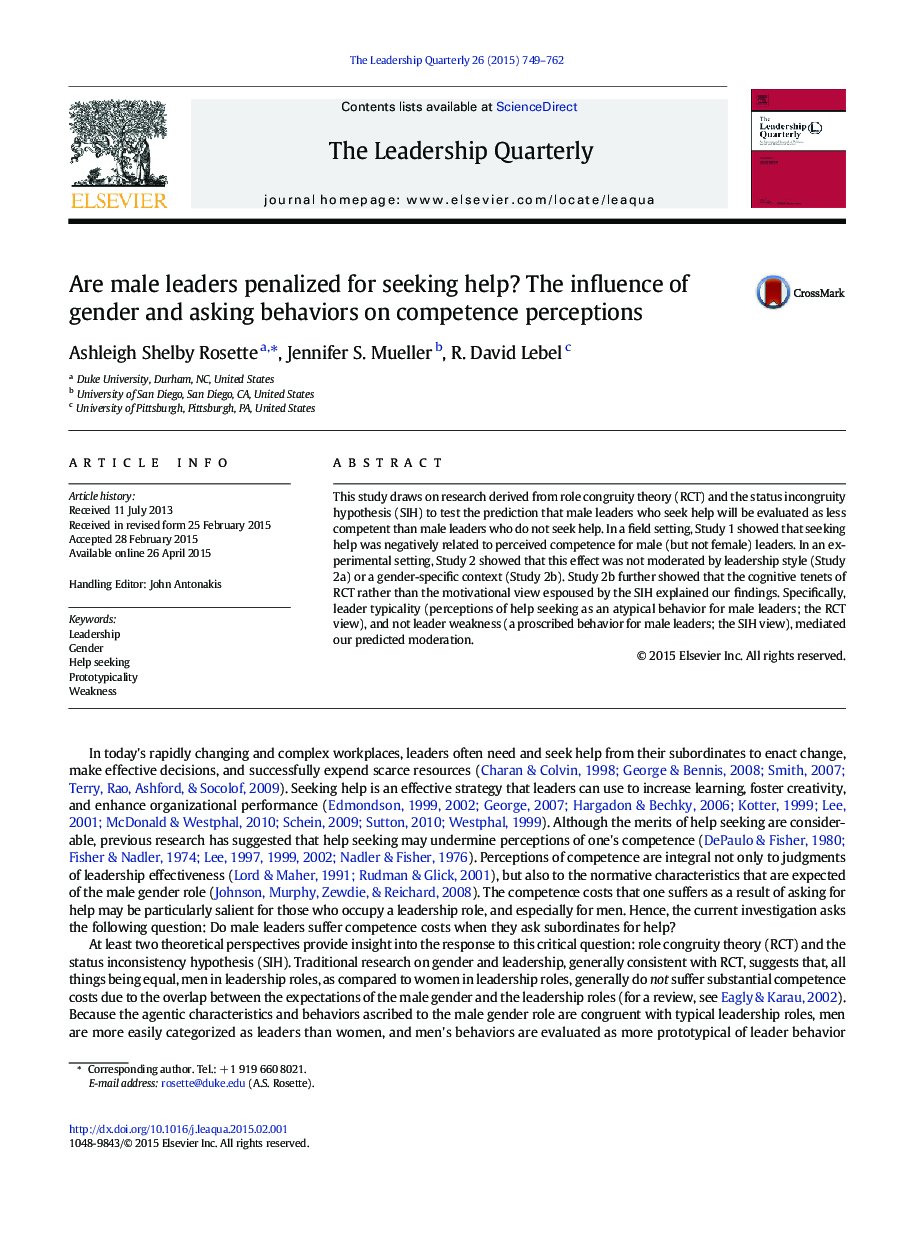| Article ID | Journal | Published Year | Pages | File Type |
|---|---|---|---|---|
| 887783 | The Leadership Quarterly | 2015 | 14 Pages |
This study draws on research derived from role congruity theory (RCT) and the status incongruity hypothesis (SIH) to test the prediction that male leaders who seek help will be evaluated as less competent than male leaders who do not seek help. In a field setting, Study 1 showed that seeking help was negatively related to perceived competence for male (but not female) leaders. In an experimental setting, Study 2 showed that this effect was not moderated by leadership style (Study 2a) or a gender-specific context (Study 2b). Study 2b further showed that the cognitive tenets of RCT rather than the motivational view espoused by the SIH explained our findings. Specifically, leader typicality (perceptions of help seeking as an atypical behavior for male leaders; the RCT view), and not leader weakness (a proscribed behavior for male leaders; the SIH view), mediated our predicted moderation.
